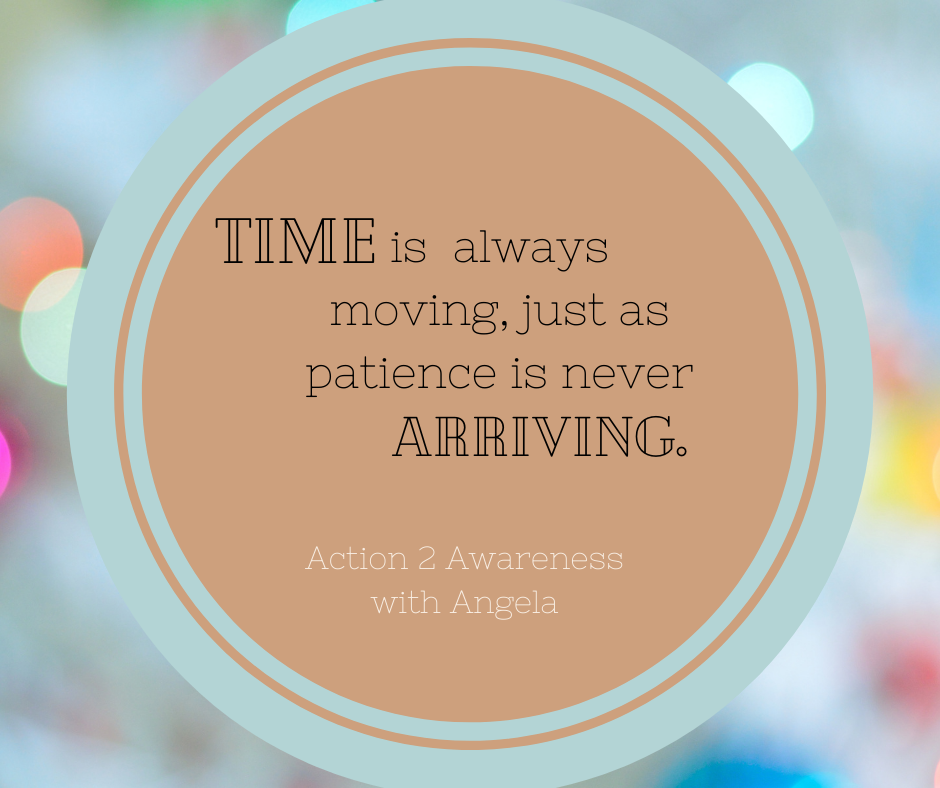
5 Tips for a Great Presentation
Tony Robins shares that we as humans have human needs and they are, certainty, variety, connection, contribution, growth, and significance. In daily life, you can

We practice so many things in our life; practice writing, practice medicine, practice piano, but do we ever arrive? The idea of arriving shouldn’t be a “deadline” to a result when practicing patience. It is an ongoing endeavor that takes time. Time is similar to patience, and I see the two concepts work hand in hand. Time can be scheduled, taken, captured, and enjoyed but time is always moving just as patience is never arriving.

When we say “practice patience” it truly is just that; you contemplate what is urgent and what you are willing to endure through the practice of being patient. I want to explore patience and time as it relates to relationships. How long will it take? How much time do I need to commit too? How many times do I have to say this to you? Our efficient brain wants to know the time it will take as if knowing the deadline on something will guarantee the result we desire.
You can make the decision that you want something else or decide that what you have is actually what you want. When it comes to the day-to-day relationship communications you commit to, you decide how to show up. You don’t get to determine their reactions or responses, but you do decide how you get to respond with patience.

Practicing patience is more about making a commitment to yourself than it is about committing to someone else. As soon as expectations are attached to practicing patience, whether it be time or action related, it is no longer patience but a tool for control to manipulate the situation, person, and outcome you want. I think about wedding vows we might make, “I, ____, take you, ____, to be my wife (or husband), to have and to hold from this day forward, for better, for worse, for richer, for poorer, in sickness and in health, to love and to cherish.”
Everything mentioned in this vow is all about what you are committing to, not what you are asking of your spouse. You each make the vow to each other and when your other half doesn’t live up to our expectations, we use it as ammunition to find fault. How long do you practice patience? According to the vow, until death do you part, or how I like to see it, all the days of our lives.
Where are you trying to arrive in your relationship? What do you think will be different when you get there? How much time are you willing to give it until you arrive? These questions again reflect back to patience and time. When you have decided to practice patience and allow others to be who they are, then your life choices have more measure behind them, and they may not be as difficult to make. When it is based on the happiness you have decided to create in your life, your relationships and interactions have very little to do with others and more to do with you.
There is much wisdom in those who have endured many of life’s challenges. Most would say it is communication, listening, and love—with a hefty dash of hope and faith in yourself. What I have observed when I look closely at their experiences is that they found happiness in appreciating the simplicity of life and all it offers. They are happy with themselves, so they never feel the need to look over the fence for a greener pasture.

Get the Zoom link sent to your inbox and join the live call of the week.

Tony Robins shares that we as humans have human needs and they are, certainty, variety, connection, contribution, growth, and significance. In daily life, you can

Positive Thinking I love a great positive thought as much as the next person, daily affirmations, and aspiring quotes used to be a part of

I was at the store and saw many men buying chocolates, flowers, and stuffed animals. As a lady that will be married 24 years on

As a culture, we have gotten a little confused about the difference between worth and value in my opinion. A few things have helped me